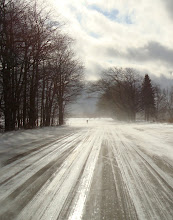The Best Sermon I Never Heard
Rosh Hashanah, the Jewish New Year, dawned sunny and cool this
year, a perfect day for reflection, prayer, penitence and t’shuvah (doing good
deeds). My first good deed of the
year was preparing for a post-synagogue gathering of 60 plus friends and family
members. With good food and a place to greet each other and the year to come, we
were mindful of the obligations we’d all just renewed for these “Days of Awe”
between the high holidays. We are obliged to examine our lives, own and
apologize for our failings, and pledge to improve as people. This is a very solemn process, but our
rabbi reminded us that it is also incumbent on each of us to find and embrace
the joy, the creative, and the life affirming in others and ourselves. The Rosh
Hashanah open house we have hosted for many years focuses us on this joyous and
positive aspect of the Days of Awe.
I am by nature a storyteller. When our synagogue announced
a theme for the season and the year to come as the Story, I found myself particularly
drawn to the rabbis’ holiday messages. In sermons over the course of two days, I heard… Story Corp from NPR would come to interview
members of our community…… our tradition is one of stories beginning with the creation, and we make and find
meaning in them……. we make choices that follow and inform our stories….. and
religiously, we seek to become a part of our higher power’s story and invite
the higher power to become a part of our own life’s story. These messages were inspiring and
relevant to me as a writer and I felt a galvanizing integration of my recent
experience, thoughts and dreams.
For example, the lead up to the Jewish New Year this week
coincided with a trip to Chicago to attend a luncheon celebrating the 20th anniversary of the United States Holocaust Memorial Museum
and a special Next Generation tribute to Holocaust survivors. Featured Speakers
were Ambassador Susan E. Rice, U.S. Permanent Representative to the United
Nations and a member of President Obama's Cabinet, Joshua B. Bolten and William
M. Daley, former Chiefs of Staff, Rahm Emanuel, former Chief of Staff and
current mayor of Chicago, and Beatrice “Trixie” Westheimer, a Holocaust
survivor. The government officials spoke of current crises in the world that
threatened Israel or involved atrocities such as in Darfur. Trixie’s story of surviving the Holocaust
closely parallels that of members of my mother’s family and I was mesmerized by
her account.
The event’s honoree was Rabbi Steven Stark
Lowenstein, my brother-in-law. Steven was honored for his passionate commitment
to educating young people about the Holocaust and its relevance today. In the
audience of 2100 people at this event on September 12 were my parents, who
themselves are Holocaust survivors, and who made the effort to travel there
from Michigan, to be Steven’s parents, as his are both gone. In his remarks,
Steven shared the stories that caused him to internalize the meaning of others’
experience: the survivor who received a number tattooed on his arm that helped
him believe he would live; (the numbers added up to 18, the Hebrew number for
life), the survivor who kept his belt from when he was liberated from a
concentration camp as an adult; a belt that was too small to fit any of the young
students in Steven’s middle school class, Steven’s rabbinical school mentor’s
own survival story, and that of my parents. He exhorted us to remember and share both the stories of
atrocities past and present, and to find our personal connections to them and
to the remedies to keep them from happening again.
Back to Rosh Hashanah…. I had gone to services the
evening before, but on this morning, I missed the part of the service during
which the rabbi gave the sermon of a lifetime. His comments had a striking impact on everyone who heard it. As my guests
arrived after the service, they were all speaking about it. The rabbi’s remarks related, as Steven’s
had, the shift from knowing and caring about keeping the memory of Holocaust
alive so that it never happens again, to having it become one’s own
experience. I wasn’t there to hear
how our rabbi learned of his own relatives’ murders and decided to go to Latvia
to find their graves and the memorials erected in their memories. I didn’t
directly hear the emotional charge of what has since been described by those
who were there as one of his best sermons ever. But I felt its impact. The power of the descriptions
shared by others summoned my own experience of researching and writing the life
of my family members who were forced to remain in Europe in the 1930s. They survived many horrors of the
Holocaust and went on to live transformational lives in Germany and Belgium in
unexpected ways that inspired me to write a novel about them, and
inspire me still.
I am reminded from these many directions of how
our stories empower us, and how important it is to share them. To a year of stories made, told, celebrated and remembered….


Beautifully expressed!
ReplyDelete